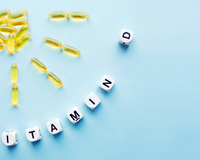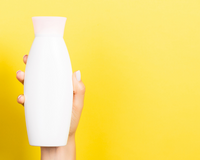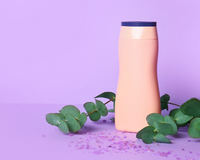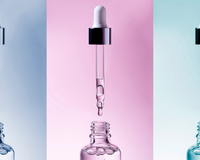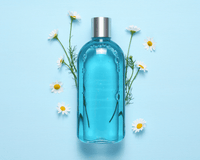Fragrance Free Hair Care Products
It's important to wash your hair to keep it clean and healthy, but you also need to know what you're putting in it. And that's not always easy to do, since many shampoo companies put ingredients on their labels that most people have never heard of. Experts say that if your shampoo's label has the word "fragrance," you should throw it away right away. Is fragrance really the devil? This is one of the biggest beauty debates. It's not unusual to find scents in fragrance free hair care products or other self-care products, but how do we know if they're really that bad?
Nobody has the same hair, and no two products are made the same way. So, there must be a difference of opinion about whether fragrance in hair products is bad for you or not. The fragrance is a general term for a mixture of different substances that give cosmetics a pleasant smell. Fragrance ingredients can come from nature, like essential oils, or they can be made in a lab using chemicals made from petroleum.
Most of the things you use to take care of your hair have scents. A lot of shampoos, conditioners, and hair styling products, like 96 percent of shampoos, 98 percent of conditioners, and 97 percent of hair styling products, have perfume in them.
Why Should You Choose Fragrance Free Hair Care Products?
Adding fragrances to hair shampoos is mostly done to give the product a nice smell that people will like. On the label of your shampoo, "perfume" can also be used to describe fragrances. But the label doesn't say what kind of chemicals are in a fragrance blend. Fragrances are also added to hair care products to cover up the smell of some of the chemicals used to make them.
There is a difference between cosmetics that say "unscented" and those that say "fragrance-free." "Unscented" means that only the scents that are meant to make things smell nice have been taken out of the formula. "Unscented" products may still have fragrances that are used to cover up smells that people don't like. The phrase "fragrance-free" means that the product has no scent of any kind. This product has no scents of any kind, including essential oils, which are natural.
Some health problems can worsen with long-term exposure to certain fragrances, but many people don't realize the risks they might be taking when they use their everyday cosmetics. Some of the health problems that have been linked to the synthetic chemicals in fragrances are changes in hormones, worsening of allergies, sinus infections, asthma, and other breathing problems.
Different Ways To Use Hair Care Products With Fragrances
Your skin is the main way that fragrances get into your body. When bad ingredients get into the skin, they can cause rashes, eczema, allergies, or inflammation. Some compounds are bad for the skin, but they can also get into the bloodstream and fatty tissues, where they can hurt the organs. It's important to know that fragrances can leave behind traces on hair and skin that can't be washed off.
Another way to get a whiff of a scent is to breathe it in. Fragrances are made of substances with small molecular weights that break down quickly in the air. When these chemicals are breathed in, they go into the lungs and can affect the brain and nerves. This changes the way hormones work and could be dangerous for people with migraines, allergies, sinus problems, asthma, or lung diseases. No matter how these chemicals get into the body, they can build up.
Environmental Concerns
Sulfates are cheap cleaning agents that are often used in shampoos because they are very good at getting rid of oil and leaving your scalp and hair feeling clean as a whistle. When sulfate shampoos are put on wet hair, they create a nice foaming effect that makes every girl with oily hair love them. Because of sulfates, we have come to think that foaming lather means you are clean. Even though sulfates are safe to use in hair products, you should choose a shampoo without sulfates instead. Sulfates are a harsh chemical that strips your hair and scalp of their natural oils. This makes your hair and scalp very dry. Over time, your hair will get weaker and start to look dull. It will also be more likely to get damaged, break, and split.
Fragrances are pretty strong chemicals that can change the quality of the air inside and outside. The chemicals could end up in the environment if washed into the groundwater, rivers, and streams. They can be eaten by fish and other aquatic life, which makes the ecosystem more polluted.
How To Keep You And Others Safe?
The best thing to do is to choose cosmetics without scents as much as possible. People often use shampoo for their hair, and when used with other chemical-filled personal care products, it can be bad for your health. So, it's best to use shampoos that say "scent-free," "fragrance-free," or "unscented" on the label. Without scents, personal care products can be bought at any pharmacy, some grocery stores, and most online stores. Always check the label to see what's in the product, and if you can, use your nose to see if it smells bad. This is a good way to make sure there is no smell, no matter what the package says.
You are doing your body a favor by choosing cosmetics that don't have a scent. You will also be doing your part to make the environment safe and healthy.
What Is Hidden Under The Label?
Fragrances are not closely watched to make sure they are safe, and there aren't many rules about how they can be used. It is not necessary to make sure they are safe before advertising. The smell that gives their products their "signature smell" is considered a trade secret. So the companies don't have to say what scent they use. Over 3,000 chemicals are used under the name "fragrance," but the public doesn't know what they are. They are usually labeled as "fragrance" or "perfume" on the bottle. Quite a few of these scents use chemicals called phthalates to make the smell last longer. Phthalates are chemicals that are known to mess with your hormones. However, most people don't know that these chemicals are in their cosmetics. Phthalates in fragrances do not have to be labeled, either, because the ingredients in fragrances are not made public.


